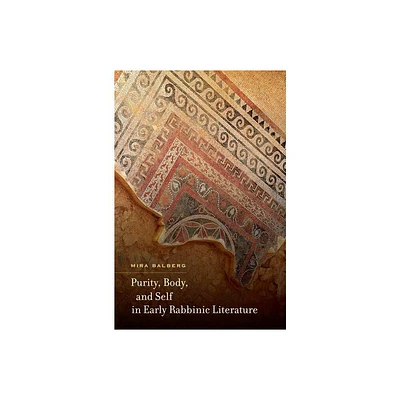Home
Marriage and Metaphor: Constructions of Gender in Rabbinic Literature
Loading Inventory...
Barnes and Noble
Marriage and Metaphor: Constructions of Gender in Rabbinic Literature
Current price: $57.99


Barnes and Noble
Marriage and Metaphor: Constructions of Gender in Rabbinic Literature
Current price: $57.99
Loading Inventory...
Size: OS
*Product Information may vary - to confirm product availability, pricing, and additional information please contact Barnes and Noble
In
Marriage and Metaphor
, Gail Labovitz explores gender relations in marriage within rabbinic culture. Labovitz shows how rabbis use the concepts of property and ownership to discuss the roles of a husband and wife, thereby modeling marriage after a business transaction-one in which the wife is seen as an acquisition owned by and subject to the husband. This ownership metaphor is clearly present in all strata of rabbinic literature and the book explores how it continues to guide rabbinic thinking, serve as a tool for legal reasoning, and produce new linguistic applications. With a close and careful reading of rabbinic texts, Labovitz applies metaphor theory and feminist linguistics to demonstrate the ways in which rabbis regularly use information from the realm of property and commercial transactions to structure their understanding of marriage and gender relations.Labovitz examines the qualities deemed "masculine" and "feminine," seeking out the methods used by members of rabbinic culture to promote, contest, legislate, and exemplify the ideas and ideals associated with proper, normative gender roles. What comes of this is a striking work of feminist scholarship that should be read by those interested in gender studies and Jewish culture and history.
Marriage and Metaphor
, Gail Labovitz explores gender relations in marriage within rabbinic culture. Labovitz shows how rabbis use the concepts of property and ownership to discuss the roles of a husband and wife, thereby modeling marriage after a business transaction-one in which the wife is seen as an acquisition owned by and subject to the husband. This ownership metaphor is clearly present in all strata of rabbinic literature and the book explores how it continues to guide rabbinic thinking, serve as a tool for legal reasoning, and produce new linguistic applications. With a close and careful reading of rabbinic texts, Labovitz applies metaphor theory and feminist linguistics to demonstrate the ways in which rabbis regularly use information from the realm of property and commercial transactions to structure their understanding of marriage and gender relations.Labovitz examines the qualities deemed "masculine" and "feminine," seeking out the methods used by members of rabbinic culture to promote, contest, legislate, and exemplify the ideas and ideals associated with proper, normative gender roles. What comes of this is a striking work of feminist scholarship that should be read by those interested in gender studies and Jewish culture and history.


















